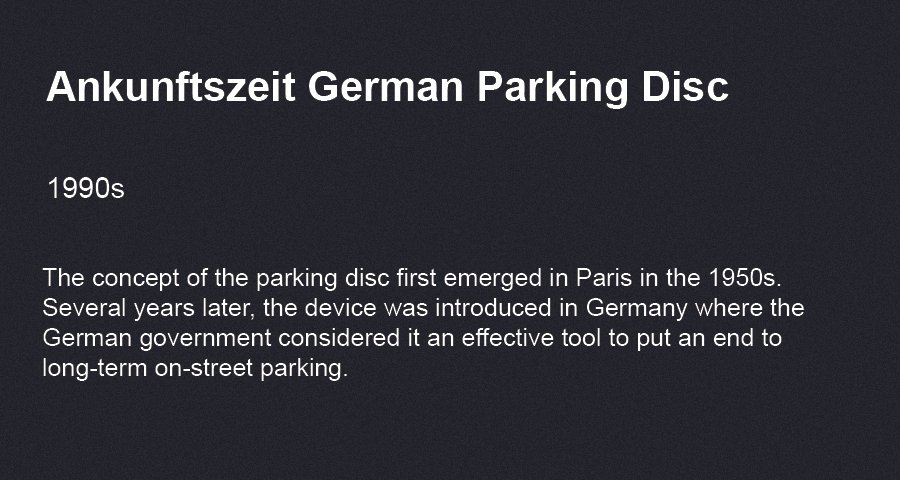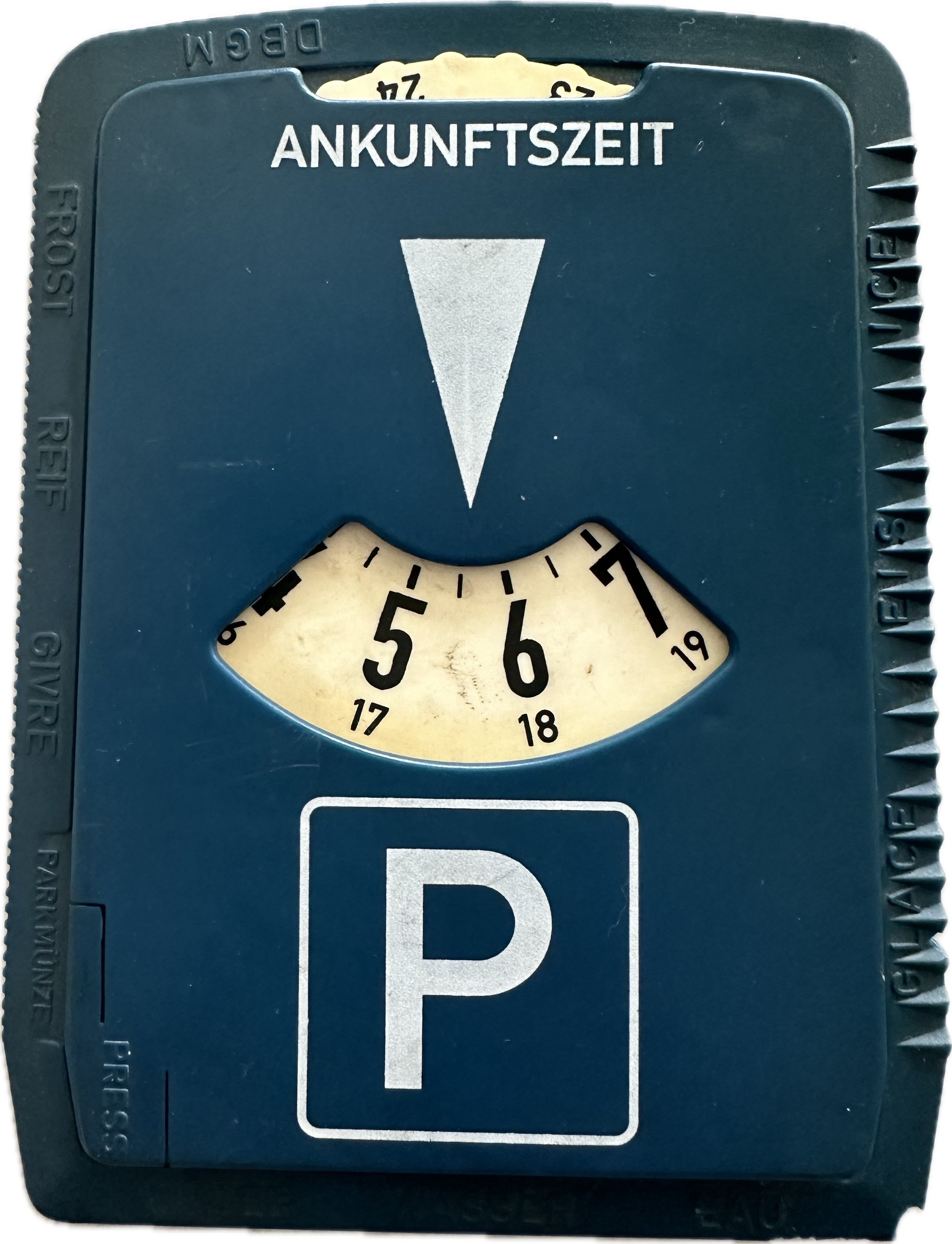Ankunftszeit German Parking Disc, 1990s
The concept of the parking disc first emerged in Paris in the 1950s. Several years later, the device was introduced in Germany where the German government considered it an effective tool to put an end to long-term on-street parking.
From garages-near-me.com:
A vital component of German parking regulations is the parking disc. Despite its small size, the tool plays a pivotal role in enforcing short-term parking rules across the country.
The concept of the parking disc (also called clock-disc) first emerged in Paris in the 1950s. Several years later, the device was introduced in Kassel, Germany. The German government considered it an effective tool to put an end to long-term on-street parking. More importantly, parking discs were much less expensive than parking meters. By 1979, unified parking disc regulations were established across the EU (+ Switzerland).
Contrary to popular belief, the blue cardboard or plastic card with an adjustable time dial isn't the only type of parking disc out there.
So what exactly is the German parking disc, when do I need one, and where do I buy one?
When do I need a parking disc?
First off, the parking disc allows you to park for free for a certain amount of time when indicated by the relevant traffic sign.
Secondly, a parking disc is required if the nearest parking meter or pay-and-display ticket machine is out of order.
Thirdly, a parking disc is required if the signs listed below are fitted with a supplementary sign specifying the permitted parking duration.
Where do I buy a paper parking disc?
You can obtain paper/cardboard parking discs for free or for a small fee from many news stands, tobacconists, DIY stores, gas stations, and police stations.
Sponsor This Artifact: Recommended $15.00 Donation.


